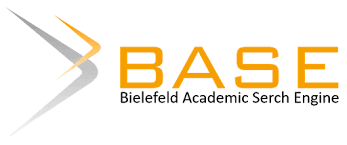STUDI EKSPLORATIF: KEMAMPUAN GURU SLB MENGEMBANGKAN ASESMEN PEMBELAJARAN BERBASIS KEARIFAN LOKAL DI PROVINSI BALI
Keywords:
responsibility, learning evaluation, local wisdom, extraordinary schoolAbstract
The government's policy to develop a Pancasila student profile for students is the focus of developing the quality of education in Indonesia. This study aims to analyze the ability of special school teachers to develop learning assessments based on local wisdom, as one of the supporters of developing Pancasila student profiles for students with special needs. The research population is teachers of public and private special schools in the province of Bali. The research method uses a mixed methods approach. Qualitative data were collected using observation sheets, document studies, and interviews. Qualitative research informants were determined by purposive sampling technique. Meanwhile, quantitative data was collected using a questionnaire instrument which was circulated online. Sample selection using random sampling technique. The number of special school teachers who responded was 49 people. The research data were analyzed using mixed methods. The results showed that quantitatively: (a) the responsibility of extraordinary school teachers to carry out tasks (X1) with an average score of 59.63 (Good), (b) extraordinary school teachers' understanding of the concept of learning evaluation (X2) with an average score -average 75.53 (Enough), (c) extraordinary school teacher's understanding of local wisdom (X3) with an average score of 71.27 (Good), and (d) extraordinary school teacher's ability to develop learning instruments based on local wisdom with an average score of 56.31 (Enough). In conclusion, special school teachers in Bali Province need to be motivated and facilitated to improve their ability to develop learning assessments based on local wisdom.
Downloads
References
Adzara, R. N., & Widajanti, A. (2016). Evaluasi Kondisi Ruang Kelas Berdasarkan Perilaku Anak Kebutuhan Khusus Down Syndrome Studi Kasus: SKH YKDW 01 Kota Tangerang. Jurnal Vitruvian, 5(3), 105–162.
Anienda, M., Fitriyah, T., & Permatasari, N. A. (2019). Anti-corruption behavior education for children to prevent corruption as extraordinary crime in the city of Surabaya. International Seminar of Research Month, 2019, 75–83. https://doi.org/10.11594/nstp.2019.0411.75
Ditta, A. S., Strickland-hughes, C. M., Cheung, C., & Wu, R. (2020). Exposure to information increases motivation to learn more. Learning and Motivation, 72(August), 101668. https://doi.org/10.1016/j.lmot.2020.101668Felicia, N., Gazali, H., Cahyadai, S., & Takwin, B. (2020). Naskah Akademik Profil Pelajar Pancasila. In Balitbang Puskurbuk.
Eliyana, A., & Ma, S. (2019). Job satisfaction and organizational commitment effect in the transformational leadership towards employee performance. European Research on Management and Business Economics, 25(3), 144–150. https://doi.org/10.1016/j.iedeen.2019.05.001Hidayat, A. N., & Mutaqien, K. (2017).
Hidayat, T., & Asyafah, A. (2019). Konsep dasar evaluasi dan implikasinya dalam evaluasi pembelajaran pendidikan agama Islam di sekolah. A-Tadzkiyyah: Jurnal Pendidikan Islam, 10(1), 159–181.
Isabella, P., Emosda, & Suratno. (2014). Evaluasi Penyelenggaraan Pendidikan Inklusi Bagi Peserta Didik Berkebutuhan Khusus di SDN 131/IV Kota Jambi. Jurnal Tekno-Pedagogi, 4(2), 45–59.
Peraturan Menteri Pendidikan dan Kebudayaan Republik Indonesia Nomor 23 Tahun 2016 tentang Standar penilaian Pendidikan pada jenjang Pendidikan Dasar dan Menengah, Kemdibud (2016).
Keputusan Direktur Jenderal Anak Usia Dini, Pendidikan Dasar, dan Pendidikan Menengah Nomor 6555/C/HK.00/2021 Tentang Penetapan Satuan Pendidikan Pelaksana Program Sekolah Penggerak, (2021).
Keputusan Direktur Jenderal Anak Usia Dini, Pendidikan Dasar, dan Pendidikan Menengah Nomor 0301/C/HK.00/2022 Tentang Penetapan Satuan Pendidikan Pelaksana Program Sekolah Penggerak Angkatan II, (2022).
Maftuhatin, L. (2014). Evaluasi Pembelajaran Anak Berkebutuhan Khusus (ABK) di Kelas Inklusif di SD Plus Darul‘Ulum Jombang. Religi: Jurnal Studi Islam, 5(2), 201–227.
Muslichah, M., Mahardhani, A. J., Azzahra, A. F. N., Ekwa, D., Safitri, C., Hadiansyah, Amala, I. A., & Nabila, S. N. (2021).. Jurnal Kiprah, 9(2), 90–99.
Nawafil, M., & Junaidi, J. (2020). Revitalisasi paradigma baru dunia pembelajaran yang membebaskan. Jurnal Pendidikan Islam Indonesia, 4(2), 215–225.
Nejati, M., Brown, M. E., Shafaei, A., & Seet, P. (2021). Employees’ perceptions of corporate social responsibility and ethical leadership: are they uniquely related to turnover intention ? Social Responsibility Journal, 17(2), 181–197. https://doi.org/10.1108/SRJ-08-2019-0276
Oktaviani, N., Putri, A. T. S., Nugroho, M. A., & Pratiwi, R. (2021). Evaluasi pembelajaran daring bagi anak berkebutuhan khusus (ABK). OSF PrePrint, 12(1), 1–9.
Priyatna, M. (2016). Pendidikan Karakter Berbasis Berbasis Kearifan Lokal. Edukasi Islami: Jurnal Pendidikan Islam, 05(10), 1311–1336.
Ramdani, E. (2018). Model Pembelajaran Kontekstual Berbasis Kearifan Lokal Sebagai Penguatan Pendidikan Karakter. Jurnal Pendidikan Ilmu-Ilmu Sosial, 10(1), 1–10.
Singh, A. (2022). Using curiosity to improve learning outcomes in schools. Sage Open, 1–15. https://doi.org/10.1177/21582440211069392Siregar, I., & Naelofaria, S. (2020). Internalisasi Nilai-Nilai Pancasila dalam Pembelajaran Dalam Jaringan (Daring) Tingkat Sekolah Dasar (SD) di Era Pandemi Covid-19. Jurnal Pendidikan Sosial Keberagaman, 7(2), 130–135.
Sudiarta, I. G. P., & Widana, I. W. (2019). Increasing mathematical proficiency and students character : lesson from the implementation of blended learning in junior high school in Bali. Journal of Physics: Conference Series. https://doi.org/10.1088/1742-6596/1317/1/012118
Sugiyono. (2018). Metode Penelitian Kombinasi (Mixed Methods). In CV Alfabeta.
Sukendra, I. K., Suharta, I. G. P., Ardana, I. M., & Ariawan, P. W. (2022). The Mechanism Development of Digital Mathematics Material Study Based on STEM. 7(2), 4098–4104. https://kalaharijournals.com/resources/FebV7_I2_495.pdf
Susilawati, E., & Sarifuddin, S. (2021). Internalization of Pancasila Values in Learning through Implementation of Pancasila Student Profile with “ Merdeka Mengajar ” Platform. Jurnal Teknodik, 25, 155–168.
Velea, S., & Speran, Ġ. (2013). Teacher ’ s responsibility in moral and affective education of children. Procedia - Social and Behavioral Sciences, 76, 863–867. https://doi.org/10.1016/j.sbspro.2013.04.221
Widana, I. W., Suarta, I. M., & Citrawan, I. W. (2019). Application of simpang tegar method: Using data comparison. Journal of Advanced Research in Dynamical and Control Systems, 11(2 Special Issue), 1825–1832.
Widyawati, R. (2017). Evaluasi Pelaksanaan Program Inklusi Sekolah Dasar. Jurnal Kelola, 4(1), 109–120.
Downloads
Published
How to Cite
Issue
Section
License
Copyright (c) 2022 LP3M Universitas PGRI Mahadewa Indonesia

This work is licensed under a Creative Commons Attribution-NonCommercial-ShareAlike 4.0 International License.
Hak cipta mencakup hak eksklusif untuk mereproduksi dan mengirimkan artikel ini dalam semua bentuk dan media, termasuk mencetak ulang, memotret, mikrofilm dan reproduksi serupa lainnya, serta terjemahannya. Reproduksi dari bagian manapun dari jurnal ini, penyimpanannya di database dan transmisinya dengan bentuk atau media apa pun, seperti salinan elektronik, elektrostatik dan mekanis, fotokopi, rekaman, media magnetik, dan lain-lain, akan diizinkan hanya dengan izin tertulis dari penerbit jurnal.







1_(1).jpg)











